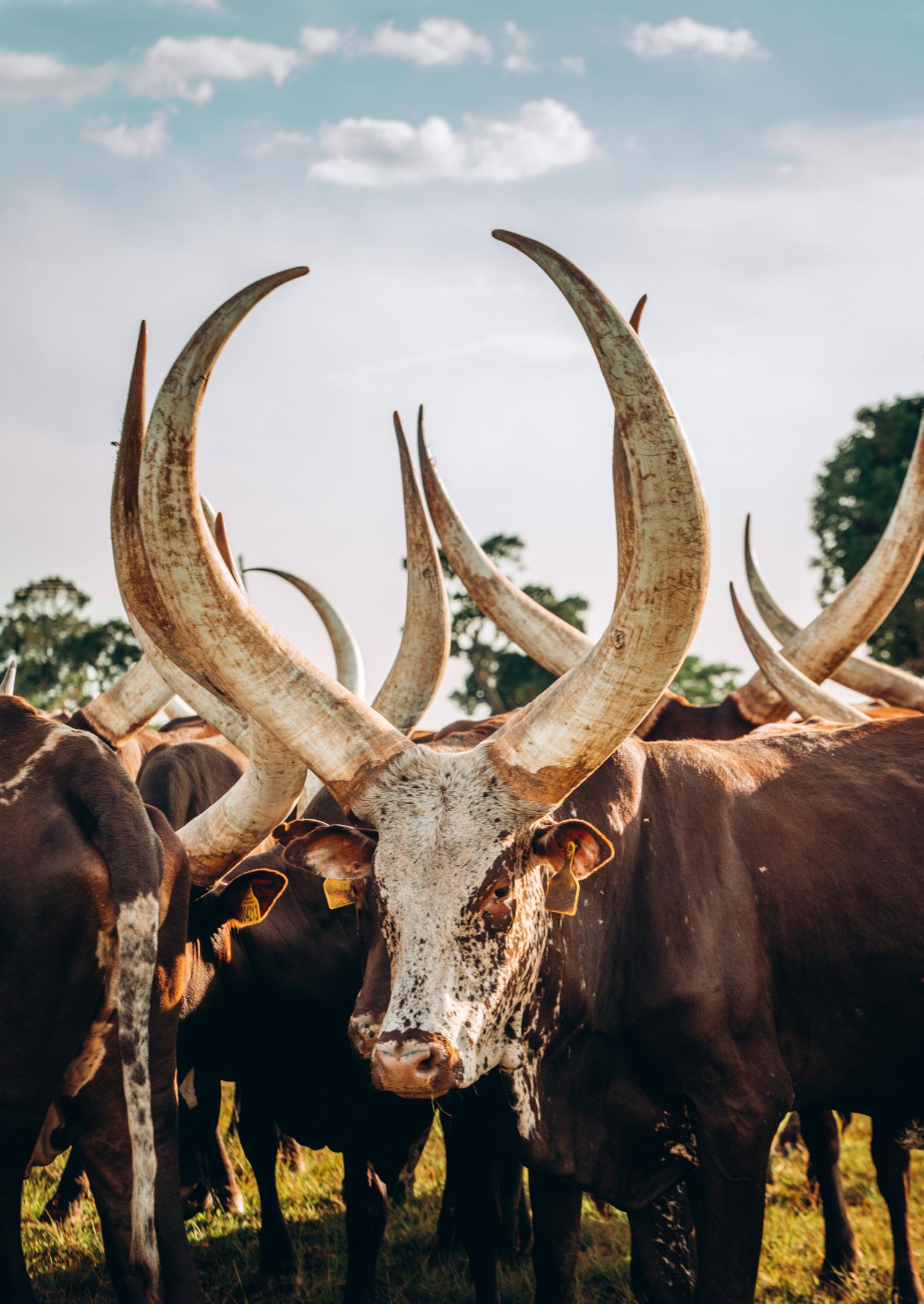




Nestled in the shadow of Mount Kenya, Borana Conservancy’s expansive plains are alive with wildlife, particularly rhinos, grevy’s zebras, and reticulated giraffes—species you won’t find in many other Kenyan parks. What sets Borana apart is the variety of ways you can explore its stunning landscapes. Whether on foot, on horseback, or on electric-assisted bicycles, the adventures are endless. Of course, there’s always the classic game drive in a fully-equipped Land Cruiser.
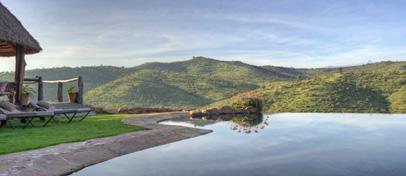
Borana Lodge is perched on a hillside and has some of the best, unobstructed views of the conservancy. The lodge is centred around the main house, where guests and guides gather for drinks and dinner in the evenings. Borana Lodge features four stand-alone cottages with private verandas for lazy afternoons or starlit dinners and two family cottages, each with a twin and double room connected by a communal sitting and dining area – ideal for families and groups of friends. Borana Lodge also invests all retained earnings into the sustainable management of land, wildlife and building local livelihoods.
But Borana isn't just dedicated to protecting Africa's magnificent creatures (though they excel at that). The Conservancy is deeply committed to supporting the local communities through initiatives like the Borana Education Support Programme and mobile clinic. By fostering a strong bond between people and wildlife, Borana creates a harmonious and promising future for all.
When it comes to finding the perfect place to stay, here are our top recommendations:

If you're seeking pure luxury with a wellness twist, Arijiju Retreat is your perfect match. This stunning fivebedroom exclusive-use house offers a stylish private safari getaway and a haven for relaxation. Think pampering spa treatments, a topnotch gym, and even tennis and squash courts – all nestled amidst the breathtaking African bush. Sounds like the ideal place to unwind after a day of spotting incredible wildlife.

For a more intimate and secluded experience, consider Lengishu House. This exclusive-use family home is a home-away-from-home with stunning views of the Laikipia plains. We recommend Lengishu for big groups or families as it accommodates up to 12 guests across 6 luxurious suites. Whether you're looking for guided experiences in the conservancy or simply want to relax and soak in the scenery, Lengishu House is a great place to unwind and reconnect with nature.
Book an adventure to Borana

Dear Reader,

It's my pleasure to welcome you back to another edition of Nomad Magazine.
I'm Sharon Machira – newest addition to the Nomad Africa family, where I'll be developing our brand new Nomad Travel Club (NTC)
If you’re new here, (insert Jay Z Voice) … allow me to reintroduce myself. I'm a creative entrepreneur deeply passionate about travel, storytelling, and technology. My mission is to explore how Africa can harness its soft power to redefine its global impact.
At NTC, we invite like-minded individuals who share a passion for Africa to join us in celebrating African culture through travel. Our tagline is, "help the trip make it out of the group chat," because we all know travel in Africa is notoriously expensive, and planning group travel is not easy. NTC offers a solution for both. We'll also host talks and club events that inspire a culture of travel, so join our travel club today and stay tuned for exciting updates on page 32.
I’ll now hand you over to the Guest Editor of this issue–an old friend whom I respect dearly. Read on to discover some amazing elephant tracking work from Save The Elephants, how we need to move toward a carbon-free future, and a thought-provoking piece on visits to local communities, among other stories. Ngugi, it's an absolute pleasure to have you. Take it away!

Nature is healing, and experiencing it through travel is uber-refreshing. As I reminisce on hosting Sharon a decade ago for a media soirée at the Nairobi National Park, I am excited to now be working with her on this issue as your Guest Editor.
I am equally delighted to be a member of NTC and can’t wait for all the memories and friendships that will be forged at the club's events and escapes.
I am Nomad. I come alive in the wild and vacay effortlessly safari-chic while at it. To bring this issue to life, I reached out to fellow travel enthusiasts to echo my voice as we explore, discover, and experience the world through adventure and fashion.
Articulated by Della Mbaya, I share my journey exploring the gem world and wanderlust pursuits. Sustainable fashion and homegrown brands are the essence of my style. I spotlight three East African brands: Kiko Romeo, Wazawazi Kenya, and Rosenkrantz.
Adding a dash of adrenaline, Abu Okari takes us on an adventurous journey, introducing the rock climbing community in Kenya. Last but not least, Oliviah Omungoh takes us to the ‘Heart of Africa’ Rwanda, for twenty-four hours.
May reading this issue spark joy, pride, and inspiration to live a little more and experience wanderlust in full bloom.
Thank You!
Ngugi Muthoni Guest Editor.

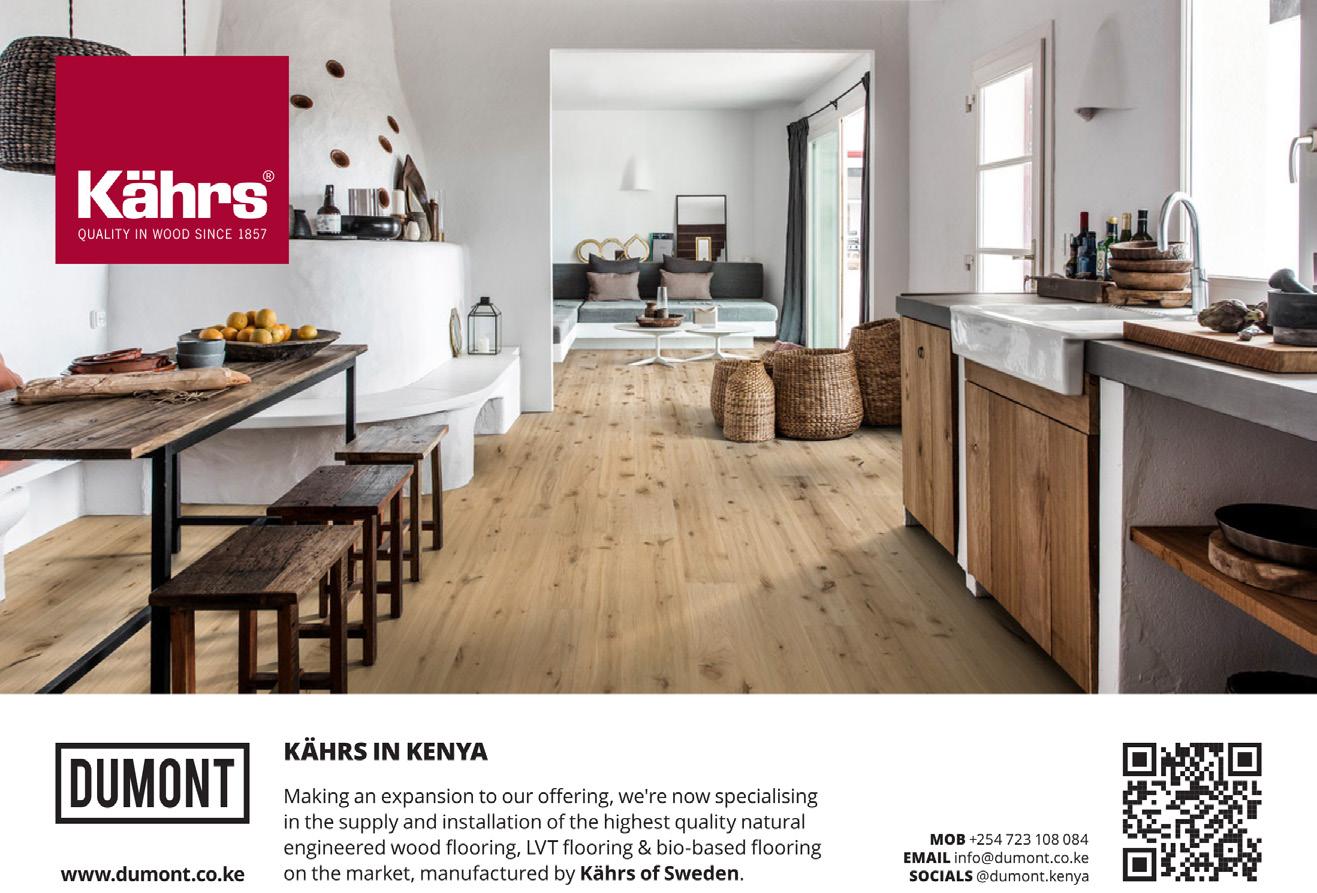

Noteworthy
CEO Lizzie Wright
HEAD OF CONTENT Ludo Fioravanti
NTC LEAD Sharon Machira
GUEST EDITOR Ngugi Muthoni
DESIGN Karan Khalsa
CONTENT & COMMUNITY BUILDER Mercy Wakio
TRAVEL OPERATIONS MANAGER Carol Soi
SALES SUPPORT & ADMINISTRATOR Trevas Matathia
HEAD OF BOOKING OPERATIONS Ludovica Cipolla
EXPERIENCE BUILDER Ann Wambui
FINANCE LEAD Wambui Everlyne
SUSTAINABILITY LEAD Sharon Rombo
ENQUIRIES bookings@nomad.africa



Set on the foothills of Africa’s highest peak in Tanzania, the Kilimanjaro Marathon offers a 42.2 km marathon, a 21.1 km half marathon and a 5 km fun run. The event is AIMS registered and supported by the Tanzania Tourist Board, the Tanzania Amateur Athletics Association, and World Athletics. Join in the party vibe in this iconic African marathon which attracts runners from across the globe. Next Race Date Sunday 23 February 2025.
The 16th Affordable Art Show, held in May 2024 at the Nairobi National Museum, attracted over 3,600 visitors. With about 750 artworks on display and more than 400 artists showcasing their work, it is one of the most significant art shows in the East Africa region. The show, run by the Kenya Museum Society, happens twice yearly and raises money to support projects at the National Museums of Kenya. The next show will take place from 27th to 29th October 2024.

July 2024
Join us for the exhilarating Victoria Falls Marathon on the 7th of July 2024, a World Athletics and AIMS-registered event. Choose from a full or half marathon, relay, or 7km fun run. Run alongside breathtaking scenery and wildlife on varied terrain against the backdrop of the spectacular Victoria Falls and iconic Vic Falls Bridge. Supported by frequent water points and enthusiastic sponsors, this is one wild race you will not forget!
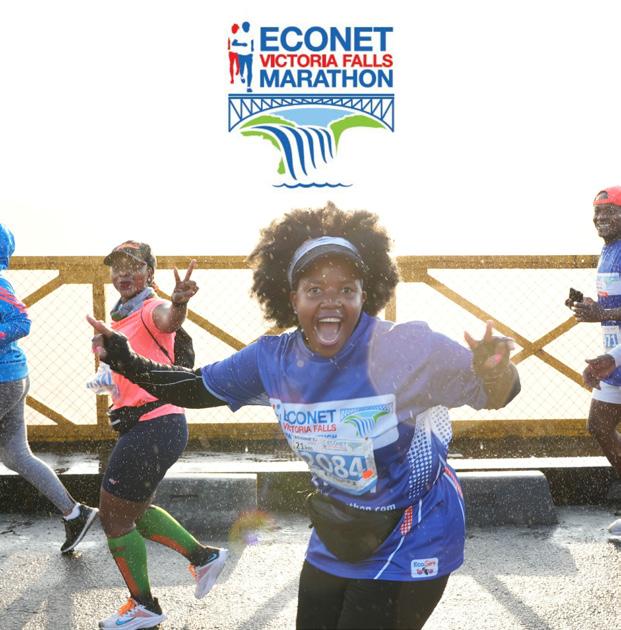

Bethuel Lasoi presents The Humans of Eden, a live, immersive concert staged through innovative and captivating storytelling combined with soul-stirring performances created to transport you into the world of Eden. The concert will be a one-of-a-kind experience, blending music, visuals, and narrative elements to create a sensory journey. Attendees will be transported into a world of wonder and reflection as they witness the unfolding story of redemption. Humans of Eden will be held at Braeburn Theaters, Nairobi, at 7 pm on August 16th, 2024




Hi, my name is Tapiwa –a loving father of 2 whose first love just so happened to be a camera. Photography is my passion and videography snuck up on me. I started this journey close to a decade ago and I‘ve had the privilege of capturing fashion, people, products and places beyond my wildest dreams. I feel the freest when I’m behind the lens, sharing a glimpse of the overwhelming beauty that is life.




Brian Kigen is a compelling photographer and filmmaker with a perfectionist’s eye for detail. He delivers imaginative campaigns from his base in Nairobi, Kenya. As a passionate automotive and motorsports enthusiast, Kigen’s broad knowledge of the automotive world comes to life in his work by delivering unmatched quality content.
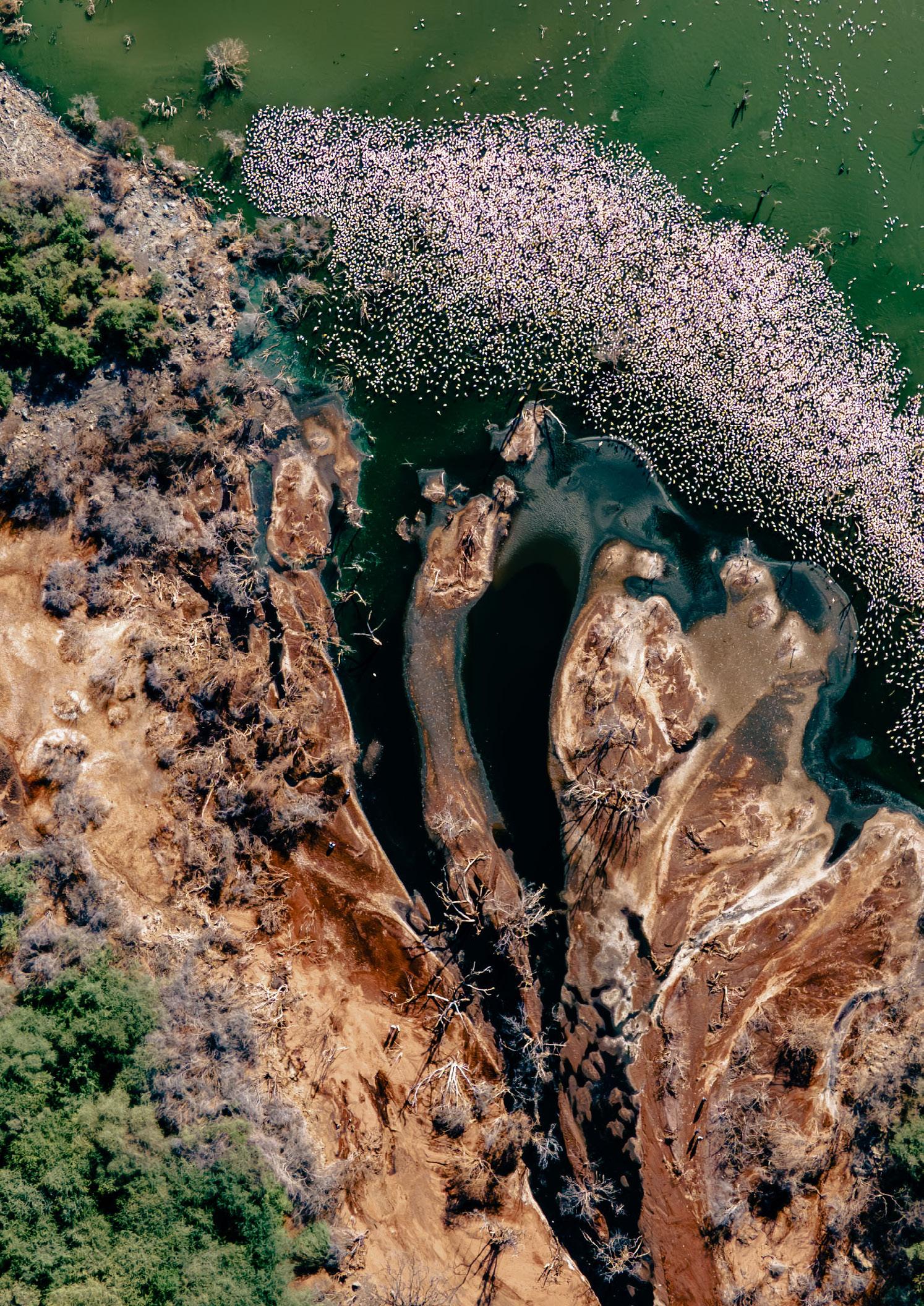


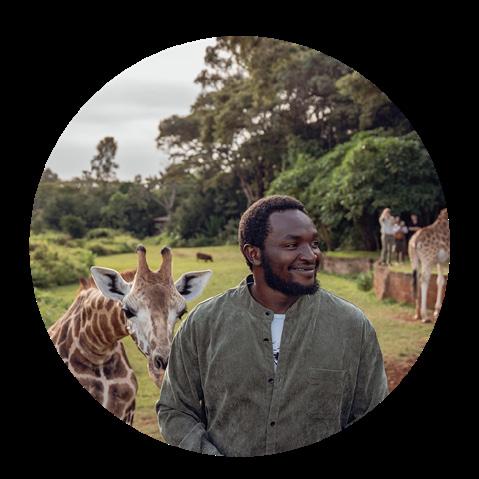
Klein Nettoh is a seasoned travel filmmaker and photographer renowned for his captivating visual narratives that seamlessly blend culture and conservation. With a keen eye for detail and a passion for storytelling, Klein has journeyed across Africa, capturing the essence of diverse landscapes and the richness of human experience. His work not only showcases the beauty of our world but also sheds light on pressing environmental and cultural conservation issues. Through his lens, Klein brings to life the intricate tapestry of our planet, inspiring viewers to appreciate and protect its wonders.

Imagine a curious wild bull elephant poking his trunk into your car window, or a group of lively but very large young elephants playfully jostling around your vehicle. This is a common experience for Save the Elephants (STE) researchers in Samburu National Reserve, northern Kenya, who spend up to eight hours a day monitoring the behaviour and movements of the world’s largest land mammal.

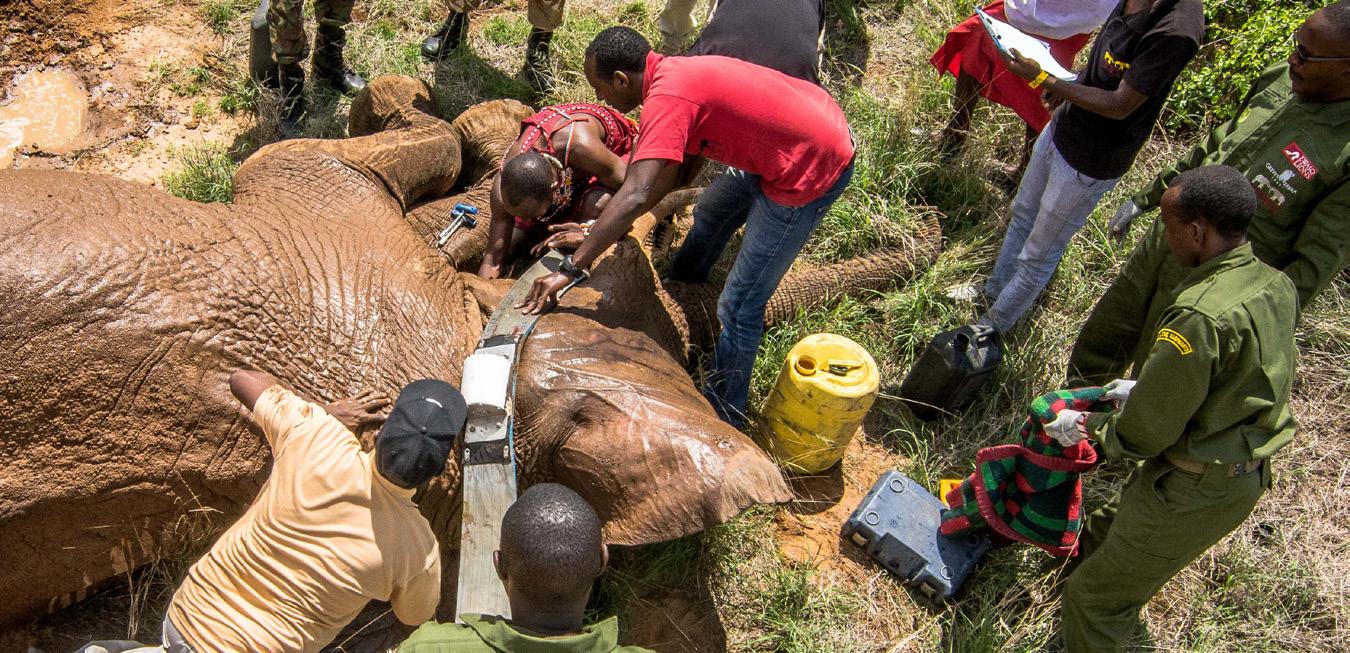
Save the Elephants has been studying elephants in this beautiful protected reserve - renowned for its dramatic landscape and rich abundance of wildlife - for more than 26 years. With an intimate knowledge of over 700 elephants identified by ear patterns and tusk shapes, STE’s researchers are helping unravel the mysteries of elephant society and giving elephants a voice. From family structures to mating preferences, every observation builds data that helps reveal the complexities of elephant behaviour.
The Samburu elephant population is one of the best studied in the world, and the data collected by researchers over the years has charted the devastating impact of poaching, human-elephant conflict, and habitat loss. With each new insight, the researchers help forge strategies to protect wild elephants from harm.
This on-the-ground data collection has contributed to more than 120 peer-reviewed papers by Save the Elephants’ researchers. Their research not only deepens our understanding of elephants but also highlights how much in common elephants have with humans. Surprisingly, elephants share striking similarities with humans - they possess complex brains, vast intelligence, engage in rituals to mourn their dead and celebrate birth, and form deep social bonds.
And just like humans, elephants can find themselves in trouble. A favourite resident of Samburu National Reserve is the curious, car-loving bull, Anwar. Not only has he cracked one or two windscreens with his tusks over the years, but he’s known for frequenting nearby lodges, eating their Acacia trees and drinking water from their private pools in front of ecstatic tourists.

There is, however, a more serious side to monitoring Anwar’s movements. During the drought, the Save the Elephants’ Rapid Response team were kept on their toes trying to keep him and other bull elephants out of harm’s way after they raided a nearby town in search of food and water, smashing through fences and tearing down trees. Anwar’s celebrity status in the park meant nothing to the angry locals whose properties were being damaged. With other male elephants killed in humanelephant conflict just a few months earlier, Save the Elephants acted swiftly to guide Anwar back to the safety of the reserve.
Keeping track of wild elephants that wander into nearby towns or roam for miles across vast landscapes is only possible thanks to advanced technology. Save the Elephants utilises satellite tracking collars to gain insights into elephants' perspectives, and currently tracks more than 450 elephants across Africa and up to 30 in Kenya. Researchers can follow the elephants’ movements on the STE WildTracks App which, alongside Earth Ranger
software, is revolutionising real-time monitoring, enabling researchers to protect elephants, like Anwar, more effectively.
Research is crucial to unlocking insights into the lives of elephants. Most recently, researchers from Save the Elephants and Colorado University have started to decode the complex vocalisations of elephants and discovered that they appear to have names for each other. In other areas, PhD researchers are working to reveal the decision-making processes of matriarchs and shedding light on the inner workings of elephant society. And this is just the beginning. With new technology like artificial intelligence and genetics, we're about to learn even more about these keystone species and their critical role in our ecosystem.
So if you’re ever lucky enough to visit Samburu National Reserve, keep an eye out for the Save the Elephants’ vehicles. Inside you’ll find a team of hard-working researchers, helping to ensure the survival of elephants for generations to come.
Just up the river from Save the Elephants in Samburu National Reserve, Elephant Watch Camp (EWC) is, as its name suggests, a great camp to stay in for ellie lovers. To further deepen the guests’ experience of these majestic animals, EWC has a dynamic partnership with Save the Elephants, and all their guides are trained on elephant identification, so you can really get to know the elephants and their personalities during your stay!

Enquire Now

Sarara, meaning 'meeting place' in the Samburu language, offers an opportunity to spot elephants up close from the comfort of the main restaurant or the natural rock pool, where a waterhole attracts these gentle giants. We particularly recommend the Sarara Treehouses, where spacious tents nestled amidst the trees provide stunning views of the wildlife below, or Sarara House—a private home whose plunge pool is often frequented by elephants!




A recent UN World Tourism Organization report indicates the sector is nearly fully recovered from COVID-19, with only a 3%, deficit from pre-pandemic levels, while debates continue on tourism’s environmental impact, particularly its 8% contribution to global greenhouse gases; however, efforts are underway to combat climate change by integrating carbon-neutral measures in tourism.
What is carbon neutrality and why does it matter in the grand scheme?
Carbon neutrality refers to the balance between carbon dioxide (CO2) emissions released into the atmosphere and the amount absorbed from it by natural carbon sinks; our sinks are oceans, forests and soils. There are no artificial carbon sinks that can remove enough CO2 from the atmosphere to stop the acceleration of global warming. Therefore, reaching a carbon neutral state means reducing carbon emissions, or complete elimination, known as net-zero carbon, and offsetting remaining emissions through initiatives like tree planting or investing in projects which reduce emissions elsewhere, known as carbon offsetting.
Though the desirable long-term solution is to remove CO2 emissions from supply chains and operations, until a business or country can achieve net-zero, carbon credit
projects can assist in their journey. If the goal is to keep the global average temperature within the safe 1.5’C threshold and not go above 2’C warming, we will have to take drastic measures; the science is clear, this is the only path to a hospitable Earth.
According to the United Nations, more than 140 countries have pledged a net-zero emissions target by 2050, including Kenya, and some as soon as 2030. Netzero emissions are a step further than carbon neutral or net-zero carbon, as they target greenhouse gases (GHGs) as well as CO2, to bring levels as close to zero as possible. All industries and sectors will be key in a country’s ability to reach its target, fortunately, we are seeing change-makers in Kenya taking initiative.
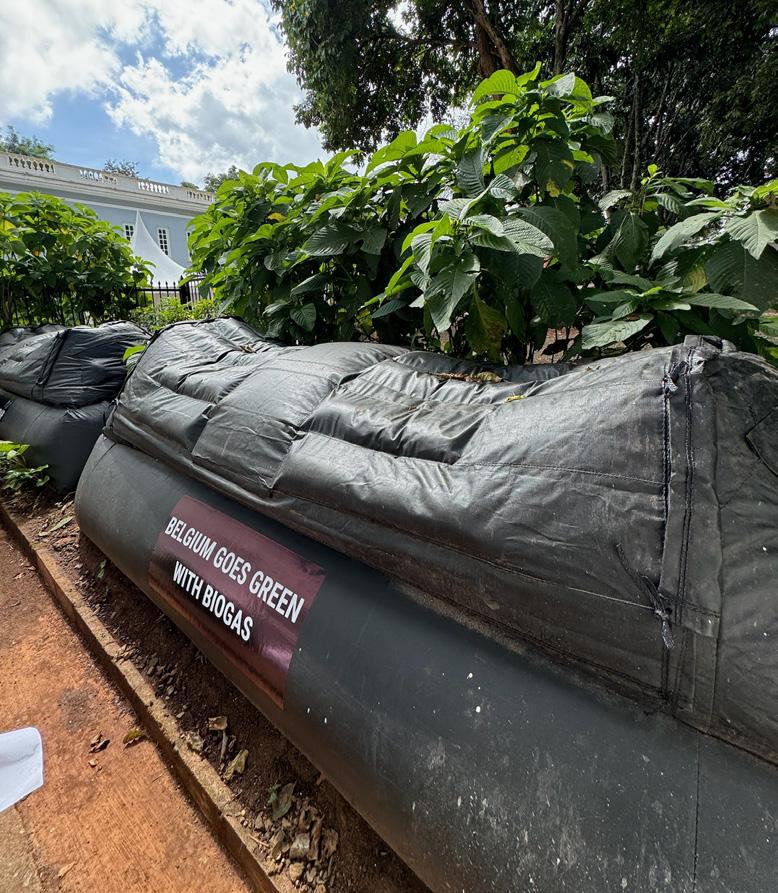
Soil is a major carbon sink, holding more CO2 than trees, but deforestation and unsustainable farming practices release the stored carbon back into the atmosphere; making soil crucial in mitigating climate change. Ololo Safari Lodge and Farm in Nairobi's National Park is doing something about it. Their aim is to achieve net-zero emissions by 2030 through regenerative agriculture practices to restore soil health, improve the water cycle, and promote a sustainable food system. Aside from being farm-to-table, 100% of the lodge’s and farm’s food waste gets turned into an organic fertiliser by Black Soldier Fly larvae, an exemplary circular economy practise that has saved the equivalent of 47,500 kg of CO2. A training centre has been set up to share this knowledge with farmers to grow the insect farm movement.
The Belgian Embassy in Nairobi has made history by being the first Belgian Embassy in the world and the only embassy in Nairobi to have a carbon-neutral operation. With the help of Emboo River Camp–the first carbonneutral safari camp in the Maasai Mara–the embassy embarked on a 2-year long project which involved the installation of solar panels, taking their energy off-grid; rainwater collection and waste-water recycling systems; a switch to a biogas digester to power their cooking needs and installing vertical gardens to grow produce for their kitchen. Their final move will be purchasing an electric vehicle, charged by a solar carport. While in the scope of Kenya’s aim to be net-zero by 2050, this is a drop in the ocean, but as the Belgium Ambassador explained “because of the visibility of the embassy, this shows what is possible and proves that if every individual does what they can, a difference can be made and a model can be copied of what has been achieved here”.
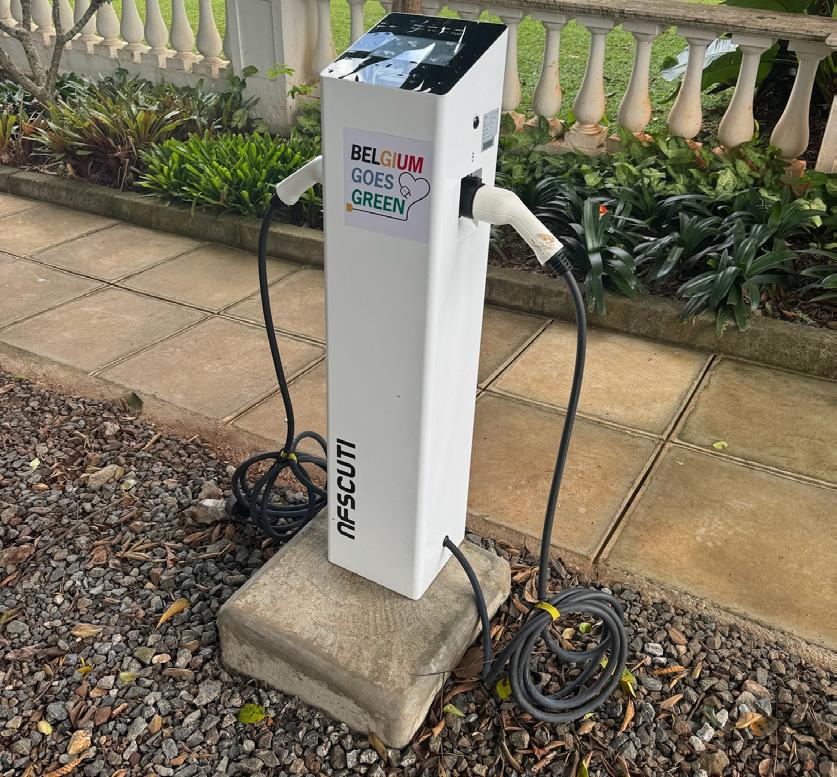


Chyulu Club located in Olpusare Spring, was the first camp in Africa to be 100% fossil fuel-free and zeroemissions. The Club’s electricity and hot water is fully powered by solar panels and all waste is recycled, including grey and black waters which are treated through ecological techniques. Their Land Rovers are electric and emissions from their aircraft are offset through an afforestation project run by the Maasai Wilderness Conservation Trust (MWCT) which was founded by the owner of The Club. The internal charter flights by Scenic Air are carbon neutral through the
Chyulu REDD+ carbon project and international flights can be offset through the same. All guests contribute to the Trust during their stay and are encouraged to participate in conservation and community projects that promote sustainable development.
The necessity to reduce emissions is unarguable. By adopting innovative technologies, implementing ambitious projects, and embracing a collective commitment to change, we can shape a safe future. We all have a part to play, conscious of the impact our choices today will have on the world of tomorrow.



 By Della Mbaya
By Della Mbaya
Della is a Digital Strategist, and former radio personality. She loves a great Safari holiday, might have an addiction to True Crime and science fiction, and has a healthy appetite for lazy brunches.

“The journey of a thousand miles begins with one step”Lao Tzu
Having shifted gears from a highly promising career in Luxury PR, Ngugi made the decision to chart a new path for himself in the less glamorous world of Civil Service. Little did he know where that detour would eventually land him.
Diplomacy had always fascinated him; however the Ministry of Mining called first, and he answered. It was during a posting to Voi, that the idea first emerged: why not meld his experience in luxury, with his interest in gemstones - one that had grown further since his move closer to the location of some of Kenya’s biggest mines? Taking on further studies in his thirties would involve a little sacrifice, but he was convinced that this path would lead to a destination that made more sense to him.
“Whilst in Voi, the decision to do gemology was because I wanted to do something that would bring me back to a place of joy - gemstones and jewellery tie back heavily
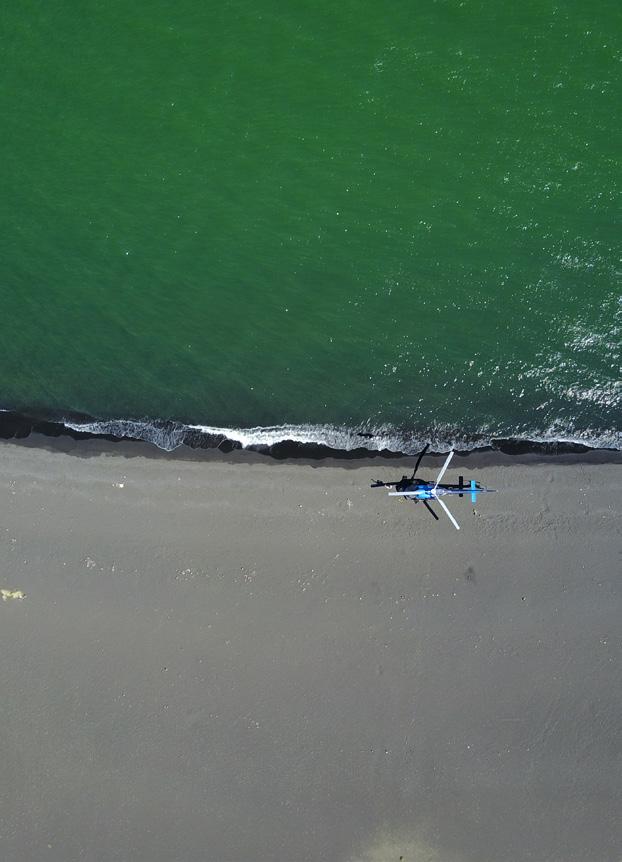
into the lifestyle sector which I loved.”
He shared his ideas with friends and family and the reaction was positive. He moved to Thailand for the course within months, and the rest is history.
The move was a whirlwind, and studies were challenging, but he learned quite a bit about himself at this time:
“You can start over at any point in your life, and more importantly, when you put your mind to something, you can achieve so much more than you are capable of.”
And it’s been quite the journey so far.
Tsavorite remains Ngugi’s favourite gemstone because of its connection to his homeland: “I’m so proud to be a Kenyan and tell the story of the gemstones that people don’t really know about. Also, green happens to be my favourite colour!”
Gemstones have the ability to connect people from different walks of life, and this is something that he’s laid witness to first-hand: “Even while dealing with clients from different parts of the world, it’s the emotions that they evoke in people. A present for a loved one or an

anniversary, jewellery carries stories from one generation to another, and brings so much happiness.”
Ngugi’s been exploring East and Southern Africa through his work, recently visiting the Cape Town Diamond Museum. He envisions a similar attraction in Kenya—a mockup mine—that could educate and attract tourists, potentially revitalizing the local tourism scene.
So what are some of the “gems” Ngugi sees in travel?
South Africa has been one of his favourite destinations, and he’s recently had the opportunity to spend time in both Cape Town as well as Johannesburg, exploring cafes, art galleries and the great outdoors - “the beauty of the wineries in the Western Cape and the affordability of good wine…it's great to see how the country has been able to market itself and attract international tourists.”
Within Kenya, he notes that the sunrise and bush breakfast atop the Chyulu Hills is one of his favourite location memories. The solitude, the expanse and the connection with nature have made safari vacations an easy choice for him.
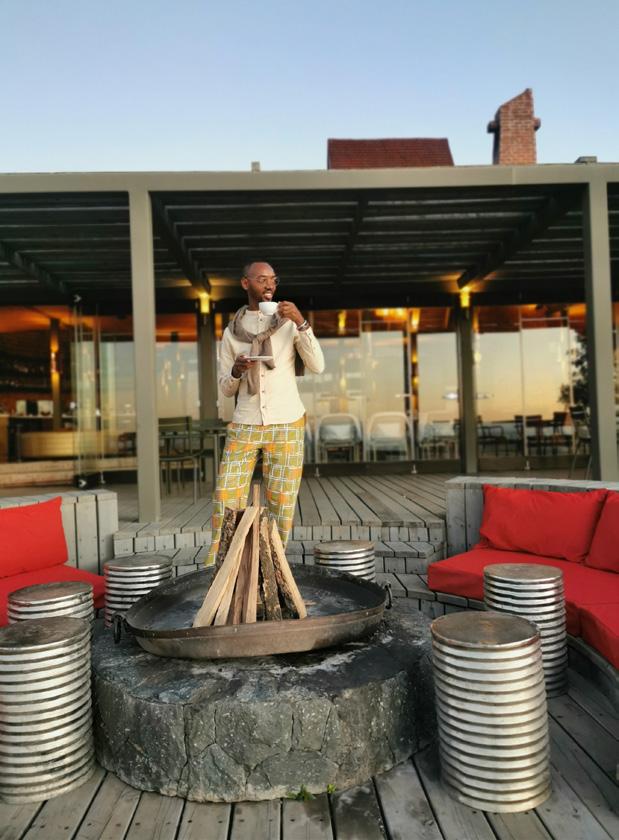
And then there’s Lake Turkana, or the “Jade Sea”, because of its vibrant green waters caused by a high algae content. This is a top destination on Ngugi’s bucket list… after all, it is named after a gemstone… But it’s also its remote beauty, the fact that it’s the world’s largest desert lake, and the wild beauty depicted in pictures of flamingos, volcanoes and lava flows, ancient fossils and strange, seldom documented nomadic tribes.
So, where next? The aim for the coming months and years is to explore unexpected destinations within Asia - singling out both Japan and South Korea for their technological advancements as well as their cultural and fashion outlooks. South America is another continent that he hopes to get a chance to visit, with Peru and Colombia as compelling stops.
needs a bucketlist!
As for the next step in his career? He is open to the world, as long as travel is involved. Travel is like a good book. Every turn of the page offers something new. We are definitely excited to see what's coming up in the next chapter of his life.


I recently read a devastating article titled ‘This Will Finish Us”. It was an in-depth piece on how wealthy princes, the safari industry, and conservation groups are displacing the Maasai from the last of their Serengeti homeland. It catapulted me back to walking across a verdant hillside on the edge of the Maasai Mara late one July afternoon in 2018, an experience I considered a gift at the time. I was on my first-ever visit to the celebrated Mara, something I had only ever dreamed of experiencing, and I found myself in conversation with a real Maasai man. I remember feeling nervous because I wanted to see if I could truly connect with him and not just be another white tourist sent from a luxury lodge to invade a quiet life so deeply connected to nature.
He humoured me in English, and the itinerary I was clearly on, sharing ancient wisdom and native knowledge in a calm, soothing voice as we slowly made our way
By Emma Jude Jackson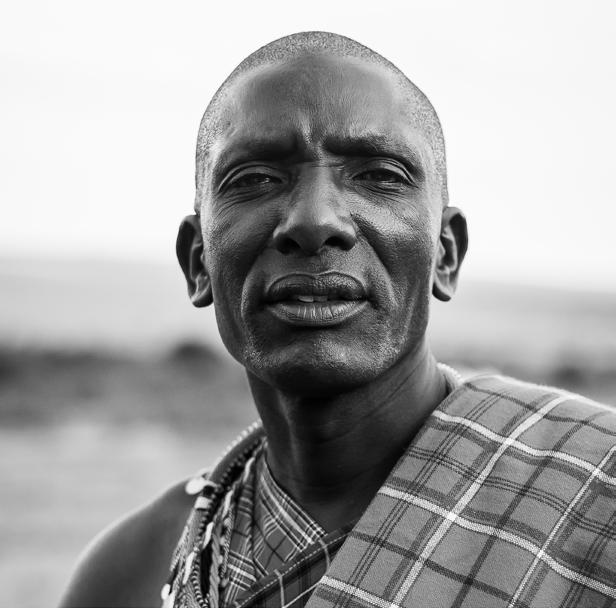
up to his village. He introduced me to the women in the community who first performed for me (something which always brings up feelings of discomfort and unworthiness) and then led me to a craft market of beaded creations where excited children gathered around to poke and prod and signal for me to take their photographs. How much was staged for me and how much was authentic? Was I projecting? Or is this the compromise for them? To keep their homeland in exchange for putting on a show for tourists and their ever-increasing numbers. Music is a significant part of my life and being able to experience a group of Maasai women in harmony is nothing short of a religious experience but what could I really give them in exchange? A handful of dollars? My respect? My weak advocacy and spiritual solidarity six years later when I found myself reading an article about the loss of their very existence?


What can I do? What can any of us do? I believe that at the very least, we have to start by opening our eyes, putting down the gin and tonic, and fully facing the reality of the colonial project hangover. How could anyone be actively choosing to force pastoralists into government housing after seizing their cattle and violently evicting them from their natural homes? How was my privileged and disconnected tourist experience of nature contributing to the problem?
We need to have difficult conversations, if for nothing more than continuously cracking open our hearts so we can feel, without the ease of ignorance, what our collective actions have done and are continuing to do to the natural world and the people who live in harmony with it. We have to make different choices, ones that
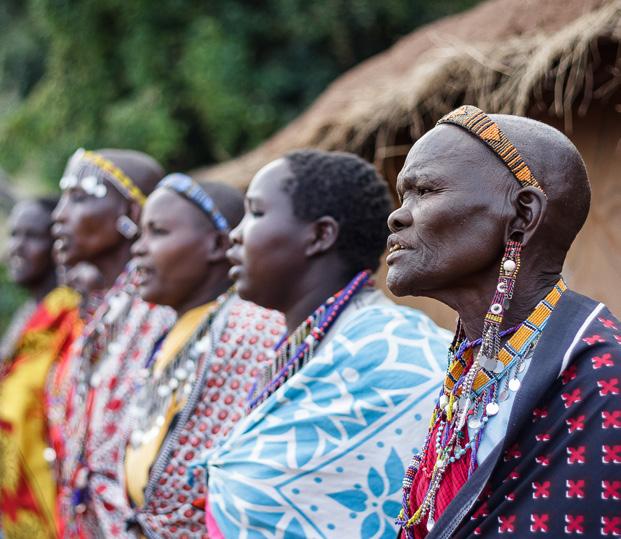
align with the regeneration of nature in all its forms, and not the destruction of culture and ancient wisdom, things we will never get back once they are lost.
“Decolonization means having conversations which create serious exchange, but also discomfort, maybe even pain, on the other side of the table. It means having to sit with that discomfort. It means understanding that decolonization is not a matter of ‘us’ and ‘them’, but concerns all of us.” - Yvette Mutumba
We need to question our own actions but more importantly, the real impact of the tourism industry and who we choose to invest in or align with when we embark on new travel experiences.



There’s a lot to say about our travel club, but let's start at the beginning, with our "Launch Party that Rocked the City."
In case you've missed the buzz around 'aprtment life' and our launch event, you must be on a serious social media detox.
When we set out to introduce our travel club to the world, we knew we wanted to make a splash. Little did we know just how big of a splash we'd make - we were trending on ‘X’.
Teaming up with the popular London-based DJ collective, 'aprtment life,' for our launch event—Safari Life—was a game-changer. Known for their YouTube and TikTok fame, they handpicked Kenyan DJs Kaneda and Sir M to perform alongside their very own DJ Parismatiq, creating a link-up we never knew we needed.
Thanks to our partners—Honeycoin App (our ticketing partner), Kofisi Centres (our venue partner), and Pan Pacific Serviced Suites Nairobi (our accommodation and apartment partner)—this event became a reality.
To our fantastic club members, thank you for joining us. We have an incredible lineup ahead of us from our curated hand-picked experiences, mini adventures, events and mixers as well as launching our brand new network of NTC Clubhouses which will ensure great deals for our Club members.
If you haven’t already, take a moment to complete your profile on our website. Sign up to join our club for free and unlock a world of benefits through our tiered reward system. Scan this QR Code to register for the club today!

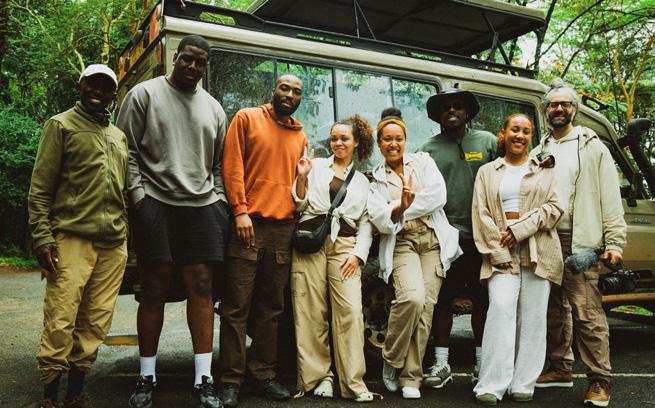



Alice Kanjejo, PR & Content Lead at Peer, fuels her work with a dual passion: innovative technology and fostering a travel-loving community that seamlessly integrates tech into their adventures.
For today’s African nomad, in a mobile-driven world where cash is increasingly giving way to digital wallets, having a seamless payment solution at your fingertips is just as important as having a perfectly planned itinerary. Enter the dynamic duo: Peer and Nomad Travel Club! This exciting collaboration dives into two things I love: money and travel! But let's be honest, seamless crossborder transactions and navigating unfamiliar financial landscapes aren't always sunshine and rainbows. This is where our dream team steps in. At Peer, where I serve as Marketing Lead, we leverage this beautiful merge of travel and technology in Africa making these journeys even more exciting! Booking luxury stays in Zanzibar or city adventures in Johannesburg is now a
few taps away on your phone.
Our innovative digital wallet, Peer, simplifies every aspect of your travel adventure. Open a secure bank account, swap currencies with ease, and book flights and accommodations – all within our user-friendly app.
We take the friction out of travel, allowing you to focus on the magic – the unexpected encounters, the heartstopping vistas, the memories etched in your soul.
For me, travel is more than just exploring new places; it's about capturing stories, connecting with diverse cultures, and embracing the richness of each destination. So, fellow nomads, pack your bags, embrace the unknown, and download the Peer app today to start planning your next adventure! The world awaits, and with Nomad Travel Club and Peer by your side, a world teeming with stories is waiting to be discovered.
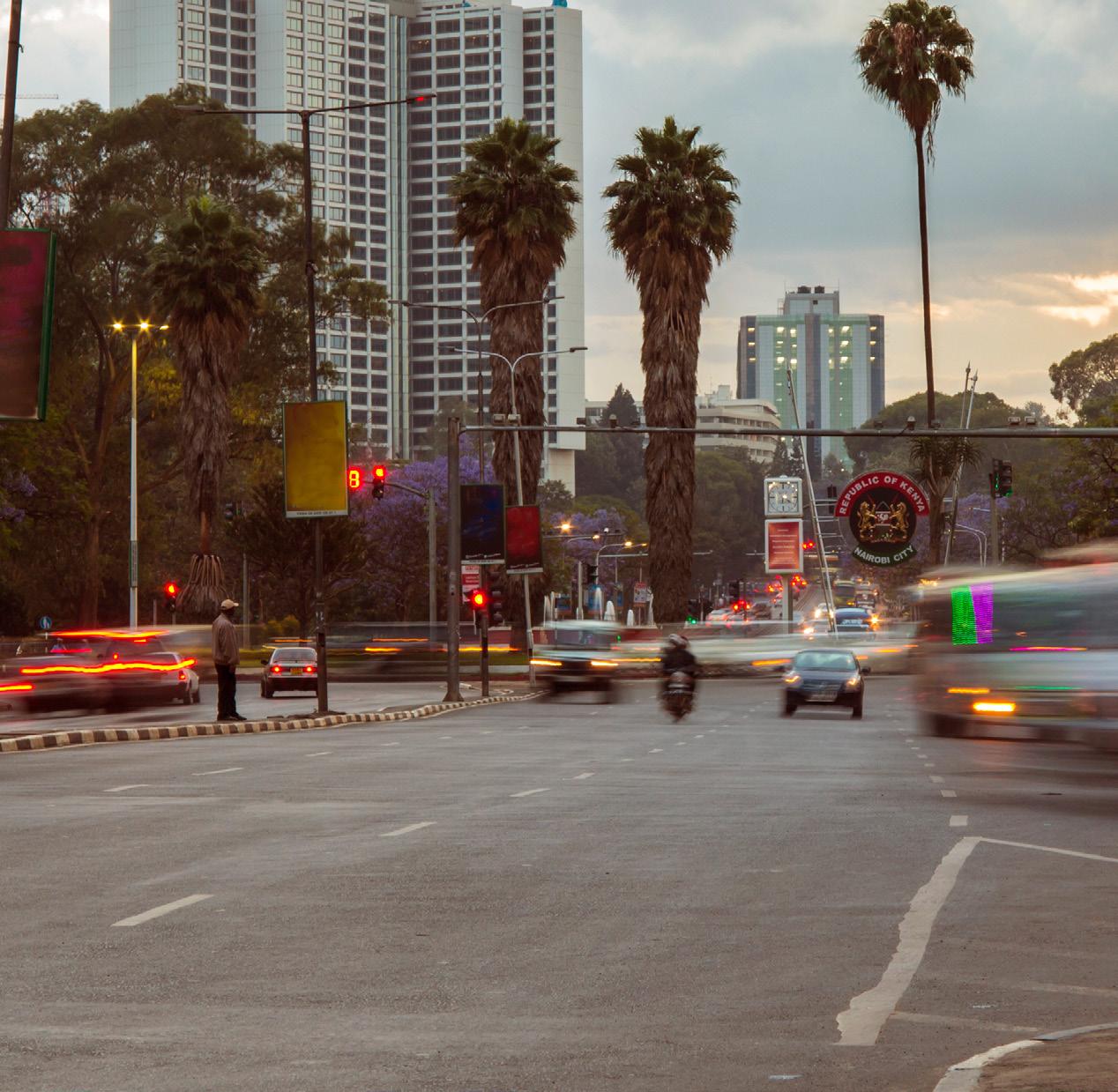
African cities are not just urban centres; they are living, breathing entities that pulsate with energy and creativity. From the bustling streets of Nairobi to the colourful markets of Dakar, each city offers a unique blend of sights, sounds, and experiences that are waiting to be discovered.
From as far back as we can remember, the narrative around tourism in Africa has long been dominated by images of vast savannas, majestic wildlife, and pristine beaches. While these natural wonders continue to captivate travellers from around the globe, there exists another facet of Africa that remains largely unexplored and untold – its vibrant and dynamic cities. At Nomad Africa, part of what we want to do is to disrupt travel within Africa by shining a spotlight on its urban landscapes. Our mission is simple yet profound: to showcase the richness of African culture, history, art and modernity that thrives within its bustling cities. African cities are not just urban centres; they are living, breathing entities that pulsate with energy and creativity. From the bustling streets of Nairobi to the colourful markets of Dakar, each city offers a unique blend of sights, sounds, and experiences that are waiting to be discovered.
Take, for example, the vibrant city of Cape Town. Nestled between the iconic Table Mountain and the azure waters of the Atlantic Ocean, Cape Town is a melting pot of cultures and influences. Visitors can explore its historic neighbourhoods, sample its world-class cuisine, or immerse themselves in its thriving fashion and arts scene. Similarly, the Rwandan capital of Kigali offers a glimpse into Africa's bright future. Despite its tragic past, Kigali has emerged as a beacon of hope and progress, with its clean streets, bustling markets, and friendly locals embodying the spirit of resilience and renewal that defines modern Africa. We envision a trip to Kigali to be both inspirational and educational, providing travellers with an opportunity to reflect on the city's remarkable journey from darkness to light and to gain a deeper understanding of the transformative power of reconciliation and unity.
Zanzibar, with its ancient stone town and pristine white
beaches, offers a taste of exoticism and tranquillity, while Nairobi, the vibrant capital of Kenya, is a hub of innovation and creativity, with its burgeoning tech scene (new nickname - Silicon Savannah) and dynamic nightlife.
We believe that true luxury lies in the authenticity of the experience.
That's why our curated itineraries are designed to immerse travellers in the heart and soul of African cities, offering them a chance to connect with local communities, explore hidden gems, and create lasting memories.
At Nomad Africa, we're not just creating travel experiences; we're connecting travellers to the heartbeat of cities through local events. From large-scale happenings like the Basketball Africa League in Rwanda
and AfroFuture in Ghana to intimate local gatherings in our hometown of Nairobi, we offer an authentic peek under the hood of urban life.
By showcasing the best of African cities, we aim to inspire a new generation of travellers to perceive Africa in a fresh light – not just as a safari destination, but as a vibrant and dynamic continent brimming with surprises and delights.
As a media agency, our roots have endowed us with a keen eye for uncovering hidden gems and anticipating the latest trends in the ever-evolving landscape of African travel. With our finger on the pulse of innovation and our commitment to highlighting the diverse tapestry of African culture, history, and modernity, we are poised to lead the way in shaping the future of urban tourism in Africa.
Sign Up to stay tuned on all future cityscapes.

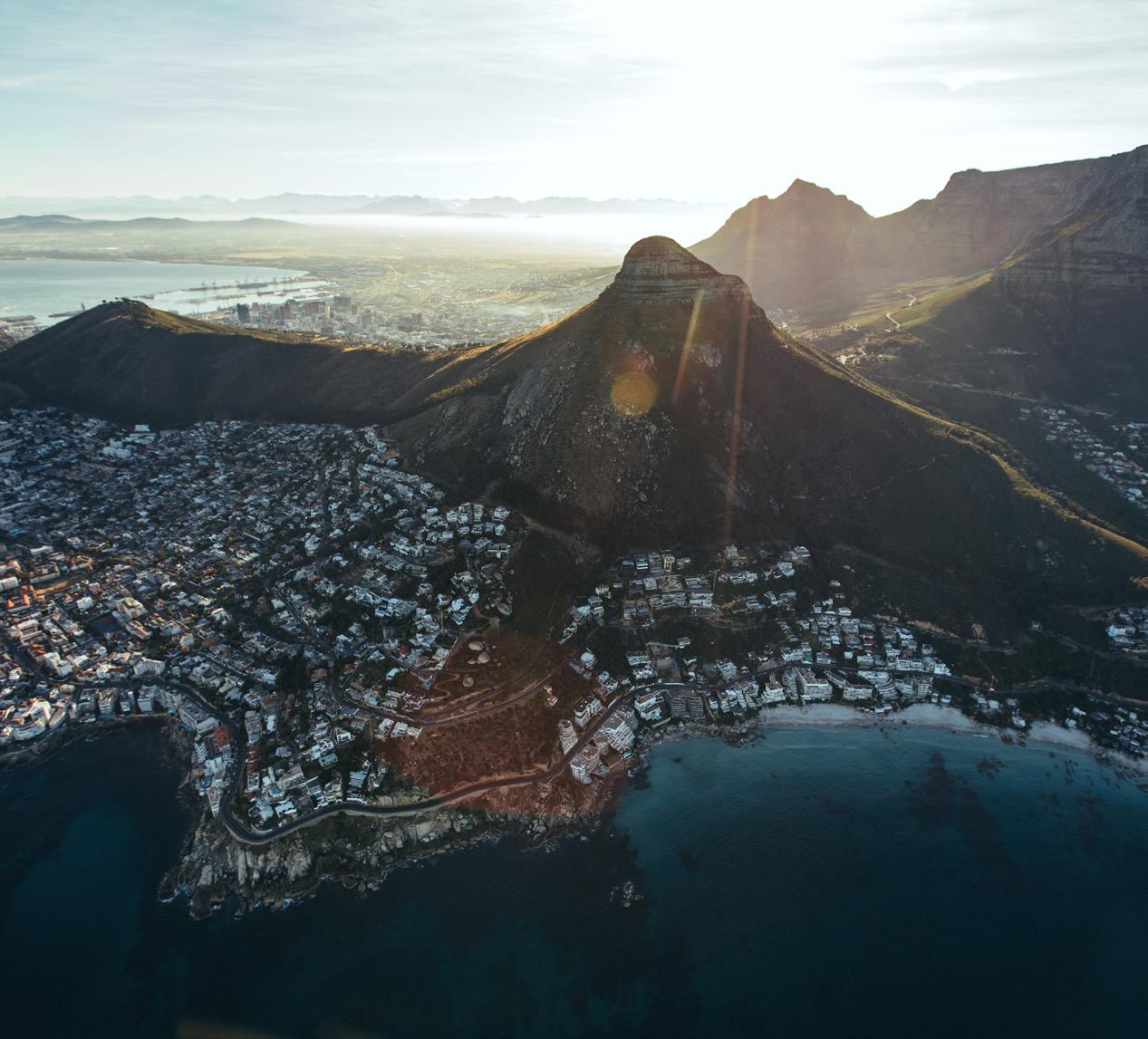
For Kenyan outdoor enthusiasts, Lukenya is synonymous with rock climbing. The 40-minute drive from Nairobi city centre makes it ideal for an adventuring soul - you can decide to go for a climb and be on the face of a rock all geared up an hour later. Lukenya is also synonymous with the Mountain Club of Kenya (MCK), a non-profit members club that owns part of Lukenya Hill, home to the rock climber’s much beloved crags and boulders. The club has existed for over 80 years and is the backbone of the Kenyan climbing culture. The club sets and maintains climbing routes, trains new climbers and connects and grows the Kenyan climbing community.
From the foundation laid by MCK, a rock climbing culture has been and continues to be vibrant but it is also now growing. Several new organisations have emerged, espousing some of the MCK values and using them to build on Kenya’s climbing culture and community.
Climbing Life Kenya (CLK) was founded to make rock climbing more accessible. Some of their interesting projects include the Swahili Rock Climbing Glossary of Terms. CLK’s approach is centred on preparing beginners and upskilling advanced climbers to better themselves at climbing. The organisation, through partnerships with organisations like RockPoint Climbing and The Global Climbing Initiative, runs programmes and boot camps to train climbers on rock climbing best practices. Until the entry of CLK, Climb BlueSky was Nairobi’s only climbing gym
 By Abu Okari
By Abu Okari
Abu is a hiker, rock climber, runner and the founder of tagelmust.com, a soon-to-be-launched online destination for the great African outdoors.
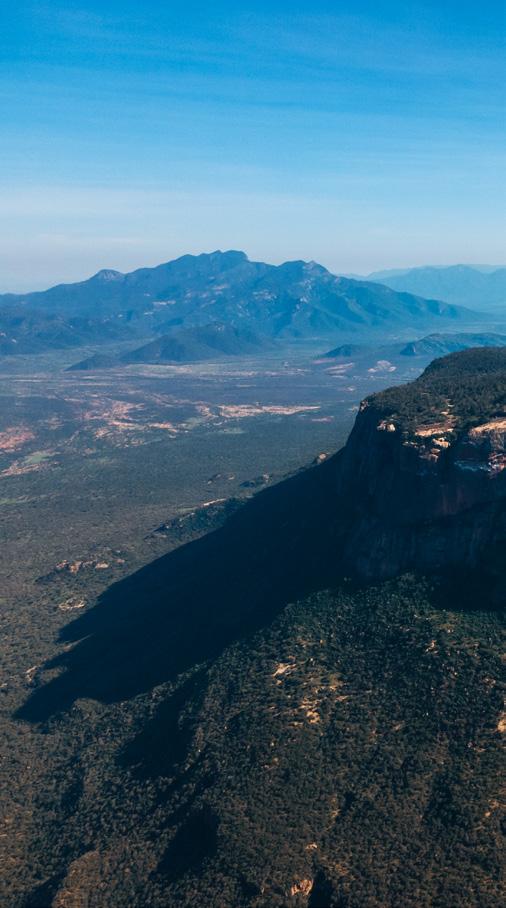
and the meeting point for rock climbers within the city. The Inkajijik, CLK’s indoor climbing gym has provided an additional space for rock climbers.
Climbing in Kenya is more than a fun sport. It is a gateway to the country’s wildlands and nature. The climbing scenes are within wildlife areas, wild areas, and mountains. The Great North is largely unexplored but is frequented by the more adventurous self-sufficient climbers. If you’re feeling adventurous, Ol Donyo Sabache, popularly known as Mt. Ololokwe is a few hours’ drive away from Nairobi. There is a strong rock climbing culture on the Mountain that is in Samburu East. Just like Lukenya, Mt. Kenya is also synonymous with rock climbing. The scenic Hell’s Gate National Park in Naivasha is also a rock climber’s favourite. Mt. Poi, Tsavo, Laikipia Mavoloni/Kilimwana, and Ndarua stadium are some of the areas that beckon those wishing to go off the beaten path. Community is at the centre of rock climbing in Kenya.

Kenyan climbers are a tight-knit community and provide the easiest and quickest access to Kenya’s climbing routes and gear. The community and the sport are steeped in a culture of conservation and environmental stewardship. MCK is instrumental in organising climbing meets, and social events like the Climb and Curry” at BlueSky and screenings of climbing films. Climbers are encouraged to respect nature, wildlife, the rights of landowners, and local communities.
Climbing in Kenya is taking a new turn with a focus on growth, promoting access and nurturing the next generation of climbers.
***
It is a sad moment for the climbing and running communities after the recent loss of Cheruiyot Kirui who passed away while attempting the audacious goal of climbing Mt. Everest without Supplemental Oxygen. May he rest well. His spirit lives on through the climbers he continues to inspire.


A GIA Graduate Gemologist, Communications, and Fine Jewellery Consultant. He enjoys life in fine style, culinary pursuits, and wanderlust.
Fashion is a purveyor of self-expression and identity. It carries and tells stories of who we are and who we aspire to be. Growing up, I was confident that this was an industry I wanted to be part of in one way or another. Let me take you on a journey of how I came to love and have these homegrown brands as life companions.
In 2011, I was a third-year student on a three-month holiday break, wondering how to be productive while still having fun with life. I contacted Ann McCreath via Facebook Messenger, confessing my love for fashion and her iconic brand, Kiko Romeo. I wanted to understand and learn the ropes of the fashion Industry in Kenya.
A favourable response came my way, and that was the beginning of my immersion in the fashion and creative industry in Nairobi. Ann opened my door to her business, home, family, and networks.
For those who have been in the fashion and creative spaces in Nairobi in the last decade, Ann brought

together the community for Kiko Romeo fashion shows, her birthday parties, the Festival of African Fashion and Arts ~ FAFA, and Ann’s Kitchen networking hangouts in her home. Everyone feels at home and included whenever she hosts a gathering.
Now, under the creative direction of her daughter Iona McCreath, the beauty of Kiko Romeo is in the custodial role the brand carries through stories of the people and places of the African continent interpreted and showcased throughout the brand's collections. From natural fibers, hand-painted fabrics, tie and dye motifs, hand-woven Kenyan cotton, regenerated orange peel fabric, and batiked linen, every Made in Kenya Kiko Romeo piece is a piece of art.
As a young professional searching for a chic work bag, a client, now turned friend, introduced me to Wazawazi Kenya, a mid-luxury leather goods company, and my life has never been the same.
Every piece of Wazawazi tells the story of Kenyan craftsmanship and modern-day African leather goods; from laptop accessories and handbags to sling and crossbody bags, travel bags, and accessories, every piece is a functional collector's item.
With another lifelong forged friendship, Chebet Mutai, the founder and creative director of Wazawazi Kenya, was gracious enough to work on a unique project with me. Wazawazi worked on preserving and giving my

late grandfather’s leather bag new life. He carried this bag for most of his work life as a senior chief in the 70s and 80s. Further, inspired by this very bag, Chebet designed the Ngugi bag and added it to her men's bag collections. A unique, heartwarming deed that keeps Wazawazi close to my heart.
The finer things in life have always been on my radar, and at this point in life, my fascination is jewellery. I came across a lovely couple, Iver and Jhaleh Rosenkrantz, the founders of Rosenkrantz, a fine jewellery brand founded in Tanzania with its home in Nairobi.
What caught my eye and stood out about Rosenkrantz is its showcase of the rawness and beauty of Africa through adventurous journeys in search of gemstones in uncharted places. All this is then conceptualized into a fine, elegant, and timeless piece of jewellery.
From dainty, everyday pieces to bespoke and high jewellery creations, Rosenkrantz has a piece of Africa for you: whether it’s a Diamond from Tanzania, a Ruby from Mozambique, an Aquamarine from Zimbabwe, or a Tsavorite from Kenya.
Beyond quality and functionality, I believe people buy into people, not mere products. These brands and the people behind them share a part of themselves with us and offer us an opportunity to enrich and experience life in a more sustainable, stylish, and fashionable way.






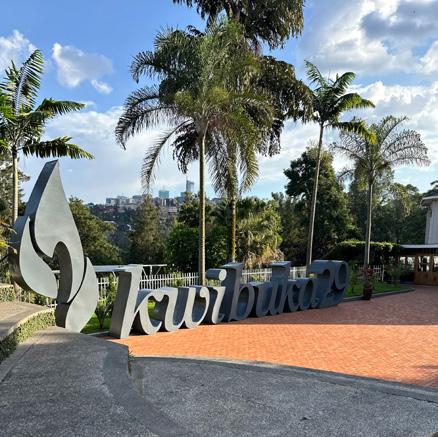

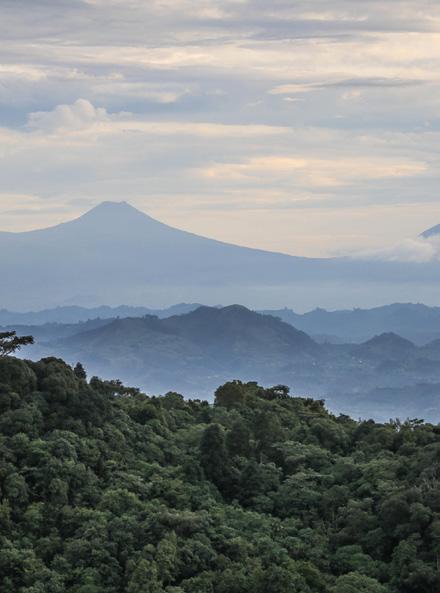

Known as the ‘Land of a thousand hills and a thousand smiles’ Kigali, the capital of Rwanda has a lot more to offer than what meets the eye. From the gleaming streets to an energetic art scene, here are some of the best things to do in Kigali if you have a day to spare:
Start with breakfast at a local café: Begin your day with a traditional Rwandan breakfast at a local. Try “umugati” (sweet potato bread) or “igitoki” (cassava dish) for an authentic taste. You won’t be disappointed.
For lunch, indulge in some Rwandan cuisine: Have lunch at a local restaurant and savor traditional Rwandese dishes such as “isombe” (cassava leaves with peanut sauce), “matoke” (cooked plantains), or “brochette” (grilled meat skewers). If you would like to try other foods, you can go to Khaza Khazana for some Indian food or Habesha for great Ethiopian food.
Conclude your day with dinner at Heaven Restaurant, known for its delicious fusion cuisine and relaxed ambiance. Enjoy a hearty meal while reflecting on your day of exploration.
Visit the Kigali Genocide Memorial to understand Rwanda’s history and its path towards reconciliation. This year marks 30 years since the dreadful genocide and twenty years since the opening of the memorial. This memorial provides a poignant insight into Rwanda’s tragic past and the 1994 genocide. Spend a couple of hours here to understand Rwanda’s history and its path towards reconciliation.
You can also head over to Kimironko Market to experience the vibrant local culture. Here you get the chance to shop for colorful fabrics, crafts, and fresh produce. Engage with local vendors and immerse yourself in the bustling atmosphere.
Kigali offers a vibrant young art scene with lots of places to explore. Spend your afternoon exploring Ivuka Arts Studio, a hub for contemporary Rwandan art. Engage with local artists, admire their work, and perhaps even purchase a piece to take home as a souvenir.
Another must-visit for art enthusiasts, Inema Arts Center showcases Rwandan creativity through paintings, sculptures, and other artistic expressions.
If you have more than 24 hours in the city, consider going to the Volcanoes National Park for some gorilla spotting. Gorilla trekking in Rwanda is an unforgettable adventure that offers a unique opportunity to observe mountain gorillas (one of the world’s most endangered species) in their natural habitat. It’s an experience that will stay with you long after you’ve left the forest.
Gorilla permits are limited and can sell out quickly, especially during peak seasons. Book well in advance to secure your spot and consider using a tour agency to make your trip seamless.
Choose accommodation that suits your preferences and budget. Kigali offers a range of options from luxury hotels and budget-friendly guesthouses, ensuring a comfortable stay for every traveler. We stayed at Oasis Park, a luxe serviced apartment that has studio, one-to-threebedroom apartments with free breakfast.
Oliviah is an experienced marketing, communications and PR expert working with a leading brand in Kenya. An absolute lover of life, she loves experiences that connect people to brands, through soul, substance, and storytelling. She loves crocheting, reading, and travelling to unknown destinations.


